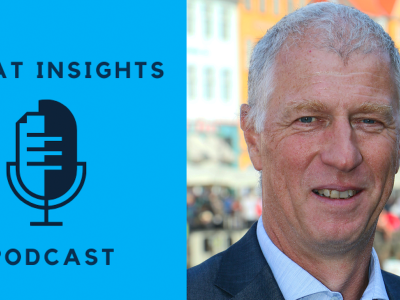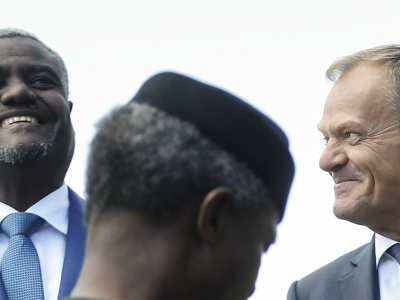
ACP-EU cooperation: Discussing the long-term future in the near future
Geert Laporte co-authored this article.
European Heads of State were recently advised to bring more than one shirt to the 22-23 November summit to discuss the EU budget. Those who specialise in the relations between the EU and the African, Caribbean and Pacific (ACP) countries will definitely also need a few more shirts during the next few weeks.
From 27-29 November the ACP-EU Joint Parliamentary Assembly (JPA) convened in Suriname, a destination European MEPs only agreed to on condition that the country’s president Desi Bouterse would not turn up. During this meeting the ACP Secretary General expressed profound concern about the European intentions to cut development funding. Recently, the EU Council President has proposed to cut future allocations to the European Development Fund by a seemingly symbolical 11%, while contributions to other areas of foreign policy would ‘only’ suffer from reductions of 7%.
On the parliamentarians’ broad meeting agenda - ranging from elephant poaching to the Millennium Development Goals - was a particularly important item: the future of ACP-EU Cooperation after the expiry of the Cotonou Partnership Agreement in 2020. After the discussions on the future configuration of ACP-EU relations and mutual interests, parliamentarians adopted a short statement. JPA Co-presidents Mr Kombo and Mr Louis Michel welcome that this topic will also be up for discussion at the ACP Summit taking place next week in Malabo, Equatorial Guinea.
Heads of States will debate the ‘The future of the ACP Group in a changing world: challenges and opportunities’, the Summit’s central theme. A background note on the website of the ACP Group sketches a number of important trends in and outside Europe and on this basis concludes that the time is right ‘(…) to take stock of the situation and to give their various implementing bodies the necessary framework and political impetus to address these challenges in the interest of ensuring the sustainable economic, social and political development of the ACP States. This consultation would be all the more timely since the ACP Group, in preparation for the expiry of the Cotonou Agreement in 2020, is currently engaged in deep reflection of its vision and its role on the international scene.’
Parallel to this ‘deep reflection’ by ACP officials, several events organised by the Centre for Conflict Resolution and by ECDPM, as well as informal meetings, serve to help EU and ACP officials to think ahead.
It is a surprisingly well-kept secret that the Cotonou Partnership Agreement, adopted in 2000, remains the most ambitious and comprehensive international partnership covering trade, development and political cooperation. Cotonou had already encapsulated the 5 principles for development cooperation effectiveness that the Paris Declaration enshrined a few years later.
Yet as one participant expressed during an ECDPM seminar on the very topic, ‘vision without implementation is hallucination’. The EU and ACP need to reflect on which parts of the cooperation agreement were used well, which not – and what the reasons behind the agreement not fully living up to its potential may be.
Although it is first and foremost up to the ACP Group to determine its future, the European Union has to invest more in clearly defining its political and strategic interests towards it. The EU would be well-advised to start engaging more proactively in informal discussions with the ACP Group on opportunities to move beyond the traditional aid relationship after 2020.
In view of the importance of these debates, ECDPM has embarked on a joint research project with the German Development Institute (DIE) to stimulate this process through independent reflection. As discussions about the future of ACP-EU relations now center around Brussels, we felt the need to enrich these. Our research seeks to present diverse perceptions from different categories of stakeholders - including government officials, Regional Economic Organisations, civil society representatives and the private sector - that are all expected to have considerable influence on the direction and outcomes of this debate. We have conducted interviews in 9 ACP countries and in Brussels with the aim to canvass the interests and perceptions on both sides of the partnership. Early next year we will publish our findings and analysis.
--
Niels Keijzer is Deputy Programme Manager EU External Action at ECDPM.
Geert Laporte, who co-authored this article, is ECDPM’s Deputy Director.
This blog post features the authors' personal views and does not represent the view of ECDPM.



